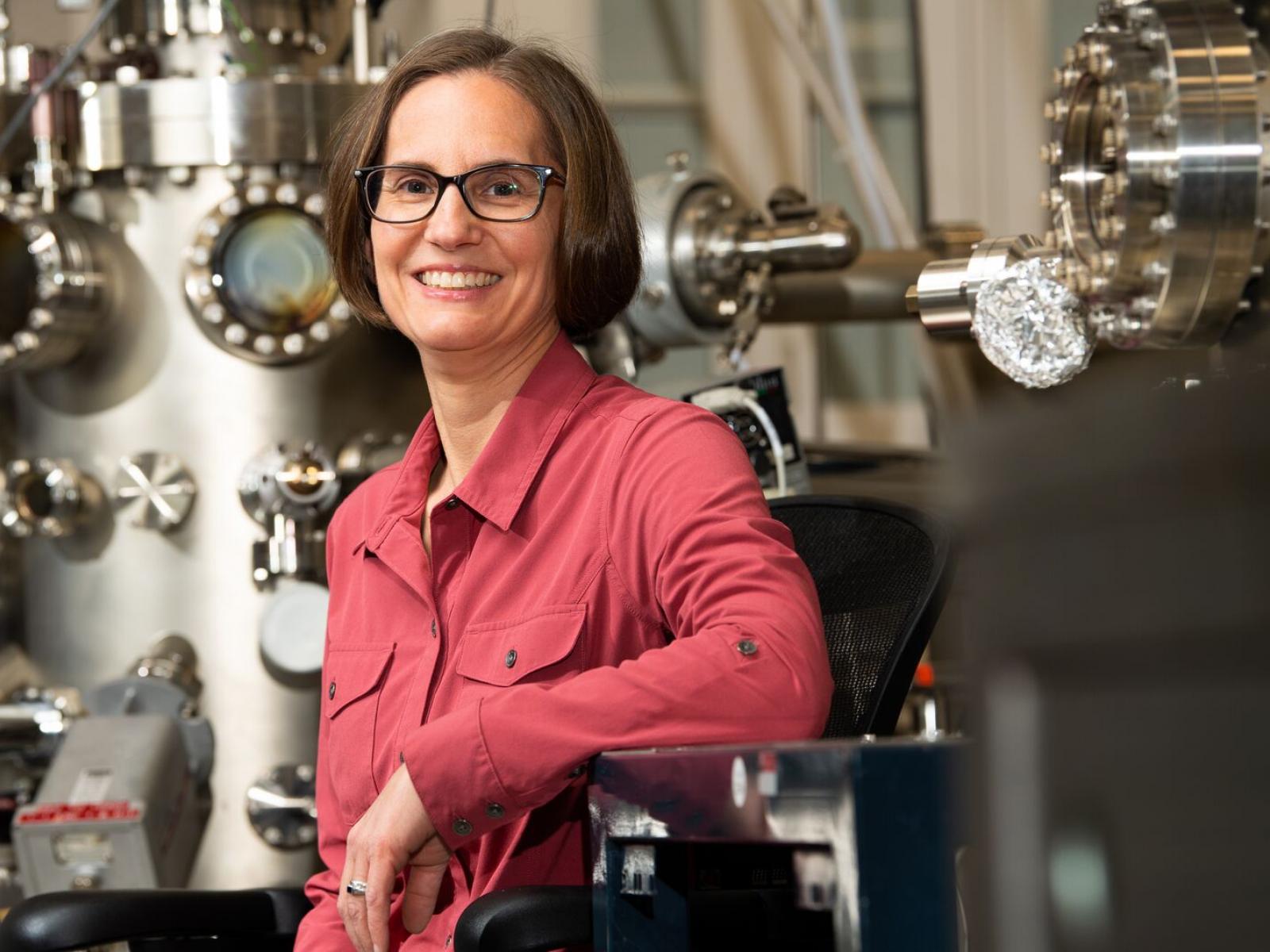Kaspar Named AVS Fellow
Tiffany Kaspar will be honored as a new fellow at the 2023 AVS 69th International Symposium and Exhibition

Tiffany Kaspar honored for leadership in the epitaxial synthesis of thin oxide films.
(Photo by Andrea Starr | Pacific Northwest National Laboratory)
Tiffany Kaspar, a materials scientist at Pacific Northwest National Laboratory (PNNL), was named a fellow of AVS. Kaspar will be honored at the AVS 69th International Symposium and Exhibition, held in November 2023 in Portland, Oregon.
Founded in 1953, AVS is an interdisciplinary society focused on materials, interfaces, and processing. Its approximately 4,500 members range from researchers performing fundamental science studies to salespeople working with commercialized products. AVS helps members connect across disciplines and sectors to advance science.
AVS Fellows are selected for their “sustained and outstanding scientific and technical contributions in research, engineering, technical advancement, academic education, or managerial leadership.” The honor recognizes the entire career of the fellows, with a minimum of a decade in leadership required. Kaspar was selected for her “outstanding contributions to the synthesis and detailed characterization of epitaxial oxide thin films leading to enhanced understanding of structure-property relationships, including effects of dopants and defects, and significant STEM educational outreach.”
“I’m thrilled to be an AVS Fellow,” said Kaspar. “I’ve been involved with the society for my entire career, so this recognition from my peers feels particularly special. I gave my first conference presentation at AVS back in 2001, and it has remained a supportive home for my research as my career has advanced. Now, through my position on the Executive Committee of the Magnetic Interfaces and Nanostructures Division and my involvement with the Pacific Northwest chapter of AVS, I’m excited to be able to continue that supportive tradition for up-and-coming students and early career researchers.”
Kaspar joined PNNL as a graduate student in 2000. Throughout her career, Kaspar has worked with epitaxially grown oxide thin films. Her expertise spans both material synthesis and characterization to develop an understanding of how the fundamental structure of materials affects their behavior.
“I’m so pleased that Tiffany’s contributions to the field and AVS have been recognized with this well-deserved honor,” said Scott Chambers, a PNNL Laboratory Fellow and AVS Fellow.
Kaspar specifically studies oxide materials that contain dopants or other defects. These changes to the material structures can lead to a wide range of different properties, including how the materials interact with light and magnetic fields. Kaspar is also working with the AT SCALE initiative to develop autonomous materials synthesis tools and the FUTURE Energy Frontier Research Center to understand how radiation damage affects structural materials, such as steel.
Published: July 14, 2023